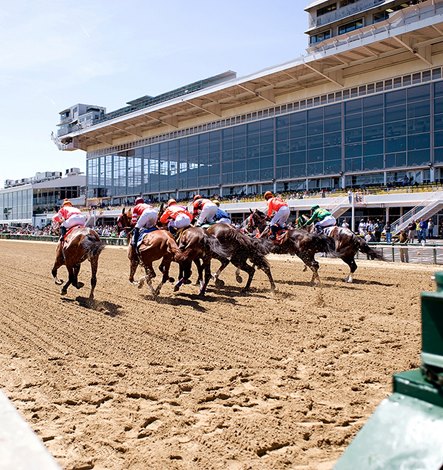Introduction:
In the world of sports, few spectacles evoke the sheer thrill and elegance witnessed on the racetrack as horse racing does. From the pounding hooves to the billowing manes, it’s a symphony of speed and grace that has enthralled audiences for centuries. In this article, we’ll delve into the multifaceted world of horse racing, exploring its rich history, the intricate artistry involved, and the profound connection between humans and these majestic athletes. Read on messiturf 10.
A Historical Gallop Through Time:
Horse racing’s roots are deeply embedded in human history, tracing back to ancient civilizations that reveled in chariot races and mounted contests. However, the formalization of horse racing, as we know it today, began in 17th-century England. Since then, this thrilling sport has traversed the globe, weaving itself into the fabric of various cultures and societies.
Three main forms of horse racing dominate the scene: flat racing, steeplechase, and harness racing. Flat racing pits sleek thoroughbreds against each other in a sprint for the finish line, showcasing their speed and agility. Steeplechase introduces the thrilling element of jumping over obstacles, testing both the equine athlete’s athleticism and the jockey’s skill. Meanwhile, harness racing sees horses pulling two-wheeled carts, offering a unique blend of power and precision.
The Poetic Motion of Thoroughbreds:
The heart of horse racing lies in the majestic thoroughbred, a breed celebrated for its speed, stamina, and spirit. The sight of these regal animals thundering down the track is a testament to the centuries of careful breeding and the symbiotic relationship between horse and rider.
Thoroughbred racing, often held on expansive tracks, is a dance of poetry in motion. The sleek bodies of these equine athletes slice through the air, propelled by powerful hindquarters and guided by the skilled hands of their jockeys. It’s a fusion of power and grace that captivates spectators, with each stride a testament to the years of training and dedication invested in these magnificent creatures.
The Jockey’s Role: A Symphony Conductor on Horseback:
At the heart of every race is the jockey, a skilled rider whose role extends beyond mere guidance. Weighing only a fraction of the horse’s weight, the jockey’s body becomes an extension of the horse’s own, communicating subtle cues and commands. The bond between jockey and horse is a nuanced partnership, where trust and understanding are as critical as speed and strategy.
Jockeys must possess an innate sense of timing and balance, navigating the twists and turns of the track with finesse. Their strategic decisions during a race can be the difference between victory and defeat. The symbiosis between horse and jockey is a testament to the artistry that underlies the seemingly chaotic rush of a horse race.
The Thundering Atmosphere of the Racetrack:
The racetrack itself is an arena charged with energy, anticipation, and an air of excitement. The moment the starting gates swing open, the thundering sound of hooves creates a symphony that resonates with the beating hearts of spectators. The air is filled with a palpable sense of anticipation as the horses surge forward, their sleek bodies straining against the wind.
Spectators, whether seasoned racing enthusiasts or casual onlookers, become part of this symphony, their cheers and gasps accompanying the horses as they hurtle towards the finish line. The sheer speed and intensity of the race create an electrifying atmosphere that transcends the boundaries of the racetrack, leaving an indelible mark on those fortunate enough to witness it.
Traditions and Iconic Races:
Horse racing is steeped in traditions that add to its allure. From the iconic mint juleps at the Kentucky Derby to the regal processions at Royal Ascot, each race has its own unique customs and pageantry. These traditions, passed down through generations, contribute to the timeless appeal of the sport.
Iconic races like the Kentucky Derby, the Grand National, and the Dubai World Cup are annual showcases of talent, speed, and endurance. These events draw participants and spectators from around the world, creating a global celebration of the equine spirit.
Challenges and the Road to Reform:
Despite its glamour and excitement, the world of horse racing faces challenges that cannot be ignored. Concerns regarding the welfare of racehorses, especially in the aftermath of high-profile injuries and fatalities, have prompted a reevaluation of practices within the industry. Issues such as the use of performance-enhancing drugs and the pressure placed on young horses to perform at an early age have sparked debates about the ethical treatment of these animals.
The industry, recognizing the need for change, has undertaken efforts to address these concerns. Advances in veterinary care, improved track surfaces, and stricter regulations regarding drug use are steps toward ensuring the well-being of both horses and jockeys. The commitment to responsible stewardship is crucial for the continued existence and positive evolution of horse racing.
Conclusion:
In the world of sports, few events rival the captivating allure of horse racing. It’s a symphony of speed, a dance of elegance, and a celebration of the timeless bond between humans and horses. As the industry grapples with challenges and strives for reform, the essence of horse racing remains undiminished — a breathtaking display of athleticism, a showcase of skill, and a testament to the enduring connection between rider and steed. Whether you’re a seasoned enthusiast or a casual observer, the racetrack beckons with its promise of excitement, beauty, and the pure, unbridled spirit of the horse. Learn more gazettedupmu2.


